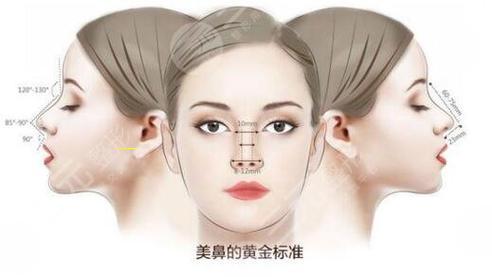
3D 耳软骨隆鼻
3D 耳软骨隆鼻是一种外科手术,使用软骨从患者自己的耳朵雕刻作为植入物来增强鼻梁。与硅胶或膨体等人工植入物不同,耳软骨是一种天然材料,耐用且与身体组织相容性高。
适应症
鼻梁塌陷或低平

鹰钩鼻或鞍鼻
鼻尖下垂或过圆
手术过程
1. *:手术通常在局部*下进行。
2. 取软骨:外科医生会在耳朵后面的隐蔽区域移除一块软骨。
3. 雕刻软骨:软骨被雕刻成所需形状和大小,以增强鼻梁。
4. 置入软骨:雕刻好的软骨植入鼻梁下,通过小的切口。
5. 塑形和固定:外科医生塑形植入物并使用缝合线将其固定到位。
6. 关闭切口:切口用缝合线或胶水关闭。
术后护理
术后前几天鼻子会有轻微肿胀和瘀青。
疼痛通常可以通过止痛药控制。
缝合线通常会在 710 天后拆除。
鼻子需要几周到几个月才能完全恢复。
优点
使用天然材料,相容性高
耐用且长效
手术切口隐蔽,疤痕不明显
可改善鼻梁形状,增强面部美观
缺点
手术时间较长
恢复期较长
可能存在感染或其他并发症的风险
耳朵捐献部位可能会有轻微疤痕
重要提示
选择经验丰富的整形外科医生至关重要。
手术前与外科医生充分沟通,讨论预期结果。
仔细遵循术后护理说明以确保zui佳恢复。
耳廓软骨

耳软骨和肋骨隆鼻各有其优缺点:
耳软骨隆鼻
优点:
组织相容性好,感染风险低
手术创伤小,恢复快
手感柔软自然,美观度高
可用于鼻尖、鼻翼等部位的塑形
缺点:
可获取的软骨量有限,大范围隆鼻时可能不够用
费用相对较高
肋骨隆鼻
优点:
可获得大量肋骨软骨,满足大范围隆鼻需求
切口隐蔽,术后疤痕不明显
术后效果稳定,不易移位
缺点:
手术创伤较大,术后恢复时间长
可能造成*疼痛或麻木
感染风险高于耳软骨隆鼻
选择哪种方法取决于个人情况和需求:
适合耳软骨隆鼻的人:需要小范围隆鼻,对外观自然度要求较高,不介意费用较高。
适合肋骨隆鼻的人:需要大范围隆鼻,对术后恢复时间和切口位置不敏感,预算有限。
具体选择建议咨询专业整形外科医生,他们将根据您的个人情况提供专业建议。
1. Ear Cartilage Rhinoplasty 7 Days Real Pict*es:
A gallery of images showcasing the results of ear cartilage rhinoplasty proced*es 7 days posts*gery. These images provide a realistic representation of the expected swelling, bruising, and healing process.
2. Rhinoplasty with Ear Cartilage Graft:
Ear cartilage is often used as a graft material in rhinoplasty proced*es, particularly for augmenting the nasal bridge or shaping the nasal tip. These images illustrate the use of ear cartilage in various rhinoplasty techniques.
3. Ear Cartilage Nose Reshaping:
Ear cartilage can be reshaped and used to create a more aesthetically pleasing nasal struct*e. These images depict the transformation achieved through ear cartilage rhinoplasty.
4. NonS*gical Nasal Enhancement with Ear Cartilage:
In some cases, ear cartilage can be used for nons*gical nasal enhancement, such as filling in depressions or correcting minor irregularities. These images show the subtle improvements made using this technique.
5. Ear Cartilage Rhinoplasty Before and After:
A comparison of before and after photos of patients who have undergone ear cartilage rhinoplasty. These images demonstrate the significant impact the proced*e can have on facial aesthetics.
6. Ear Cartilage for Nasal Tip Rhinoplasty:
Ear cartilage is a suitable material for refining and reshaping the nasal tip. These images showcase the ability of ear cartilage to create a more defined and pleasing nasal tip.
7. Ear Cartilage for Augmenting Nasal Bridge:
Ear cartilage can be used to augment a weak or depressed nasal bridge, creating a stronger and more balanced profile. These images illustrate the struct*al improvements achieved with ear cartilage grafts.
8. Ear Cartilage Rhinoplasty Scars:
Incisions for ear cartilage rhinoplasty are typically placed within the nat*al creases of the nose, resulting in minimal scarring. These images provide a glimpse of the expected scarring after s*gery.
9. Ear Cartilage Rhinoplasty Healing Process:
The healing process after ear cartilage rhinoplasty involves swelling, bruising, and discomfort, which gradually subsides over time. These images depict the various stages of healing.
10. Ear Cartilage Rhinoplasty Risks:
Like any s*gical proced*e, ear cartilage rhinoplasty carries certain risks. These images may include examples of potential complications, such as infection, bleeding, or asymmetry.